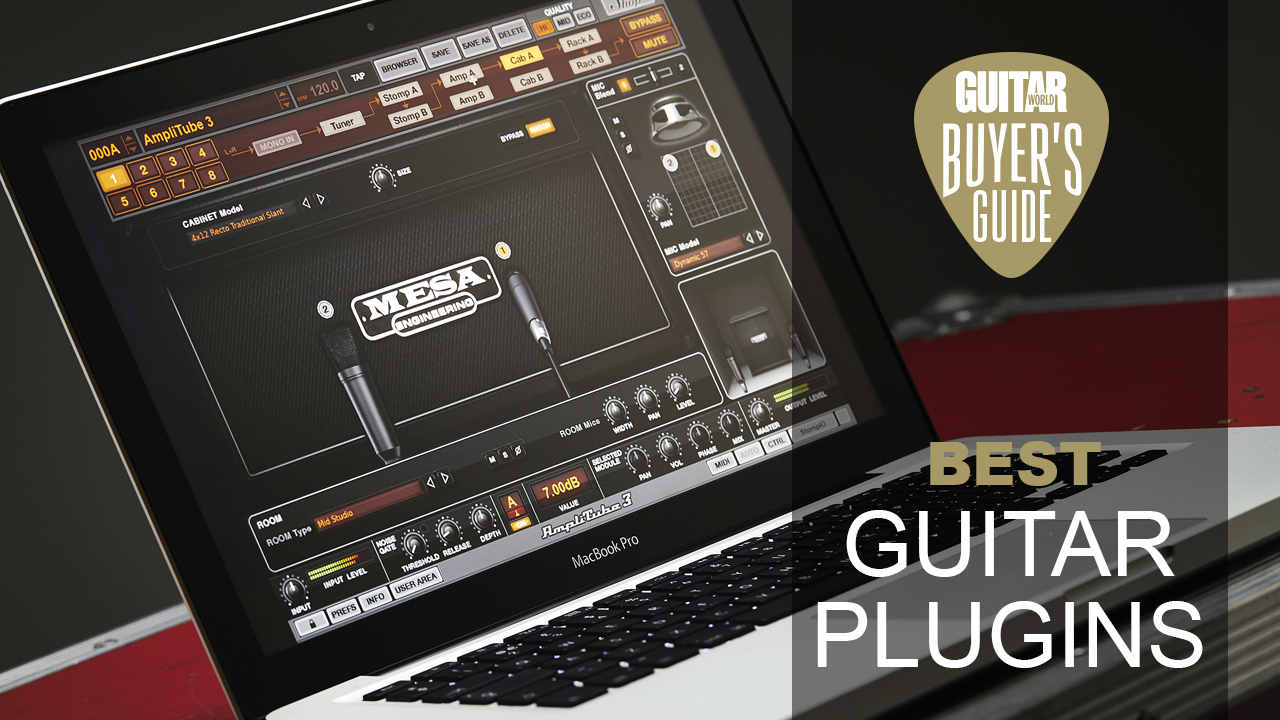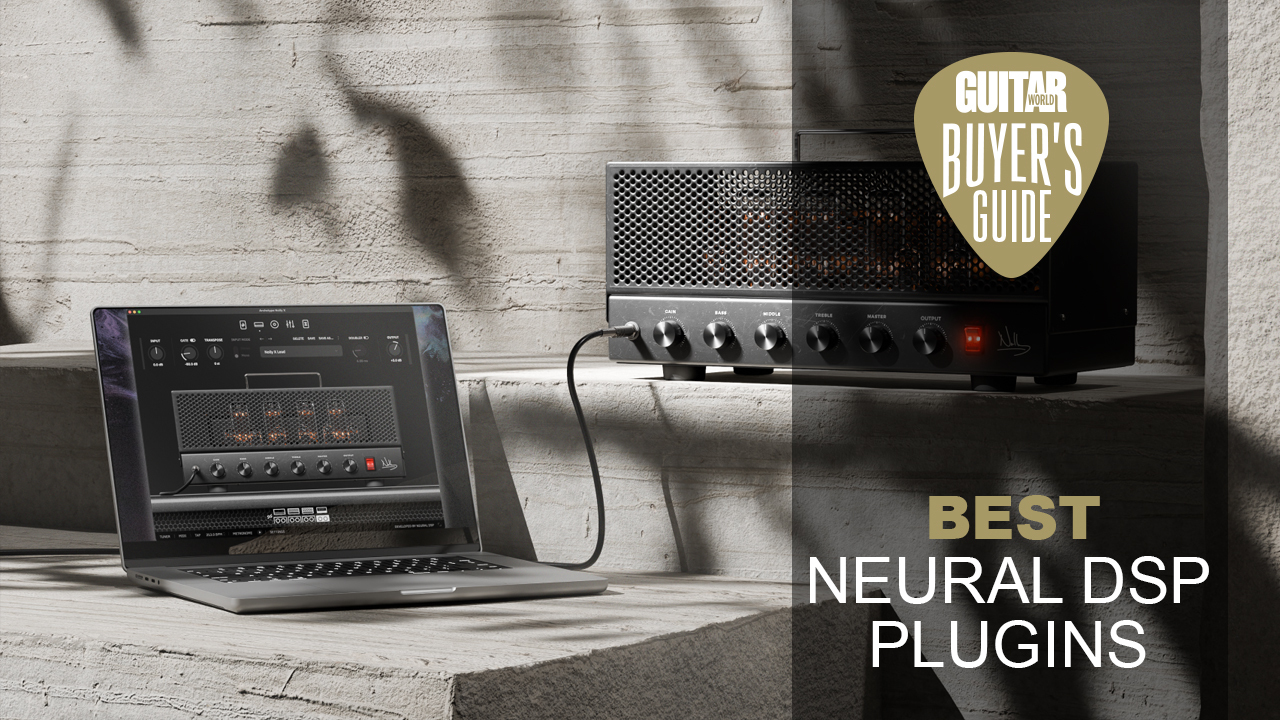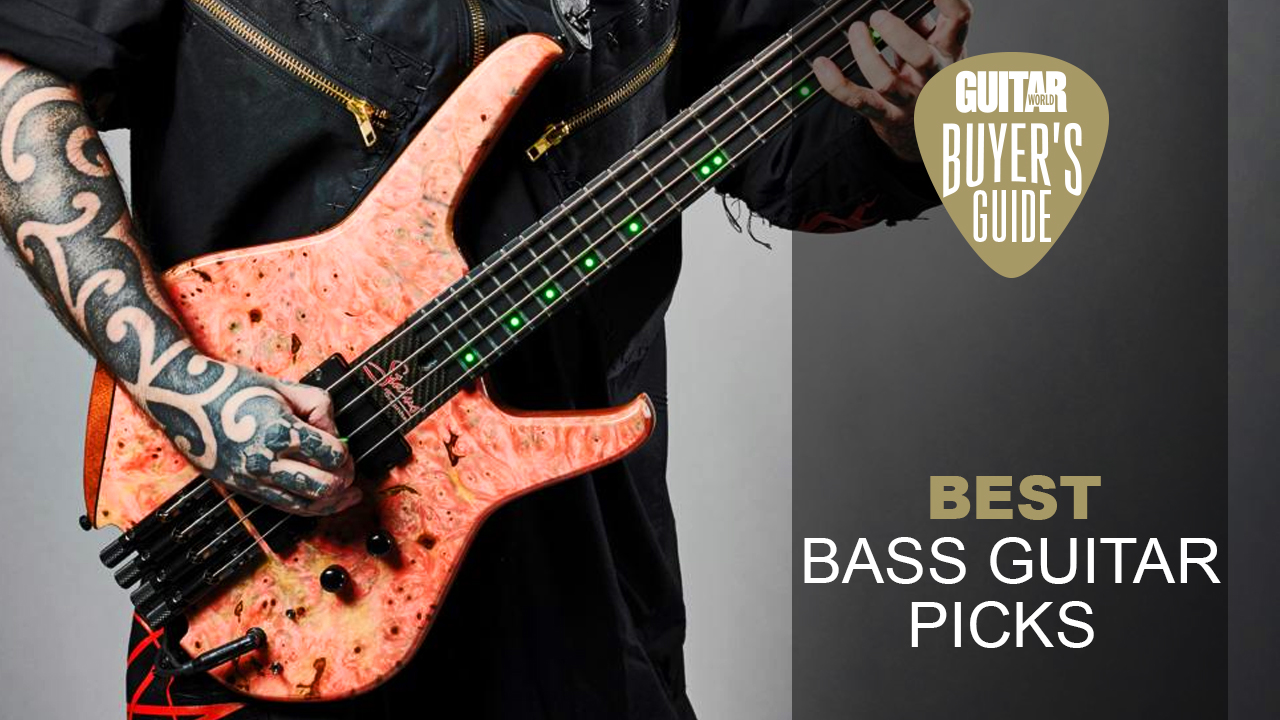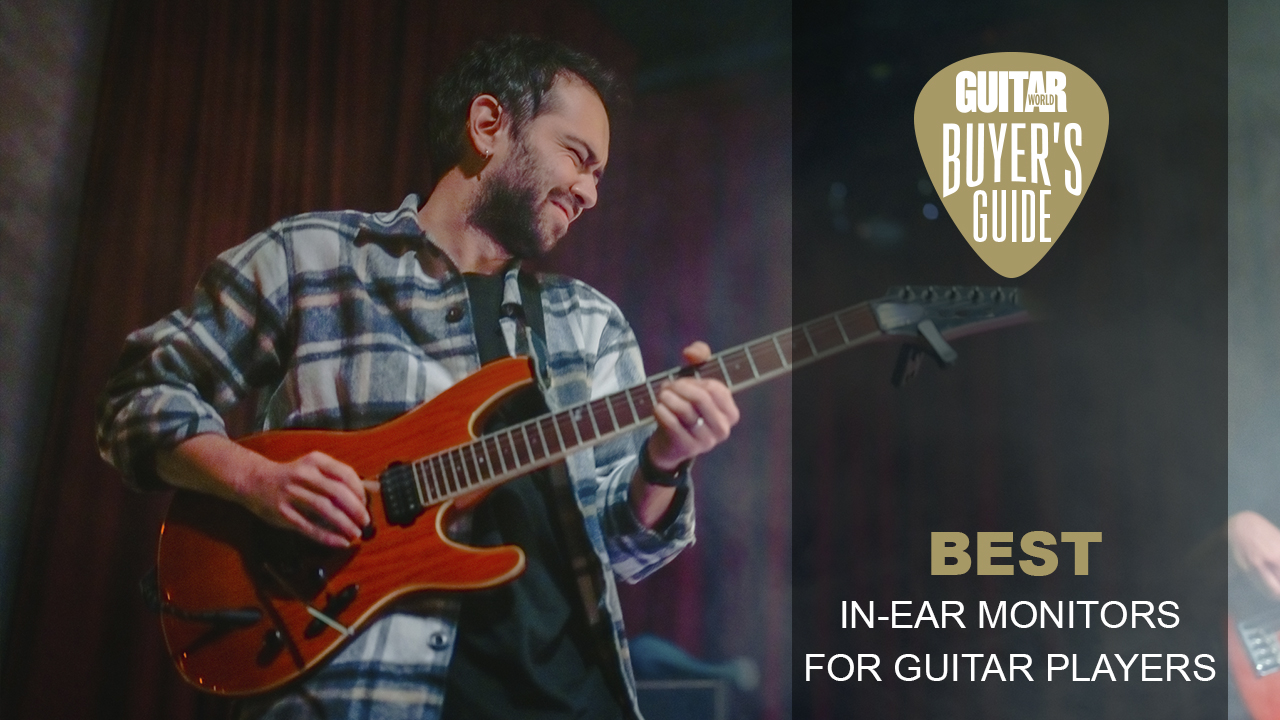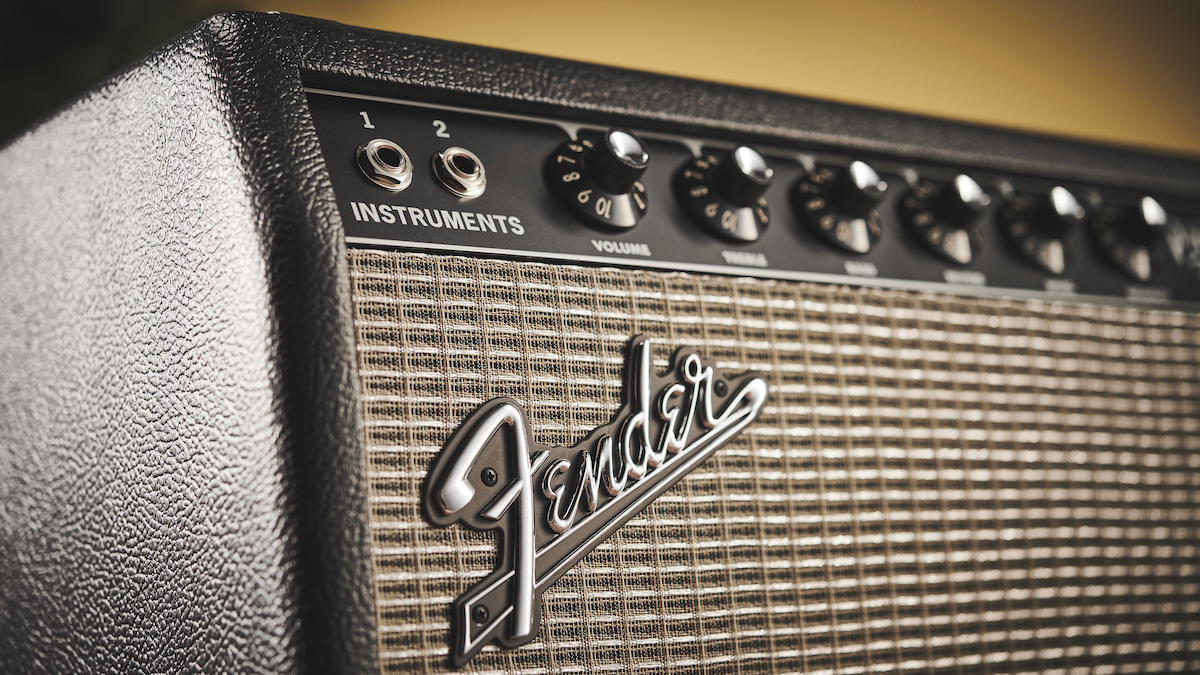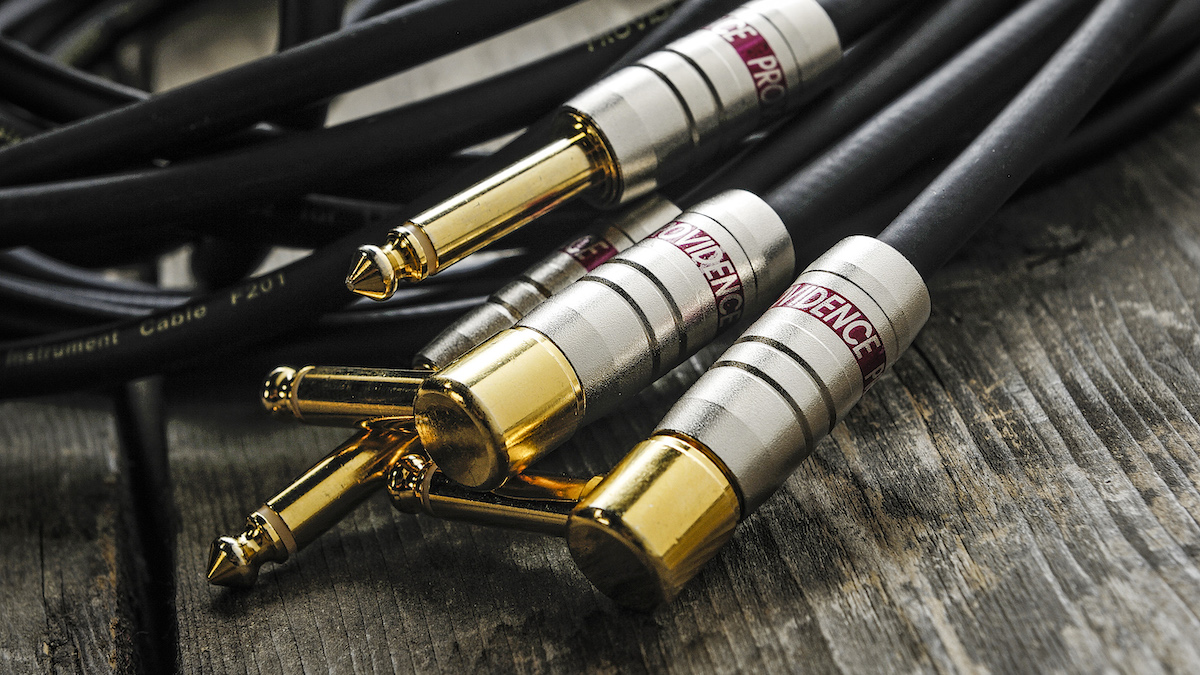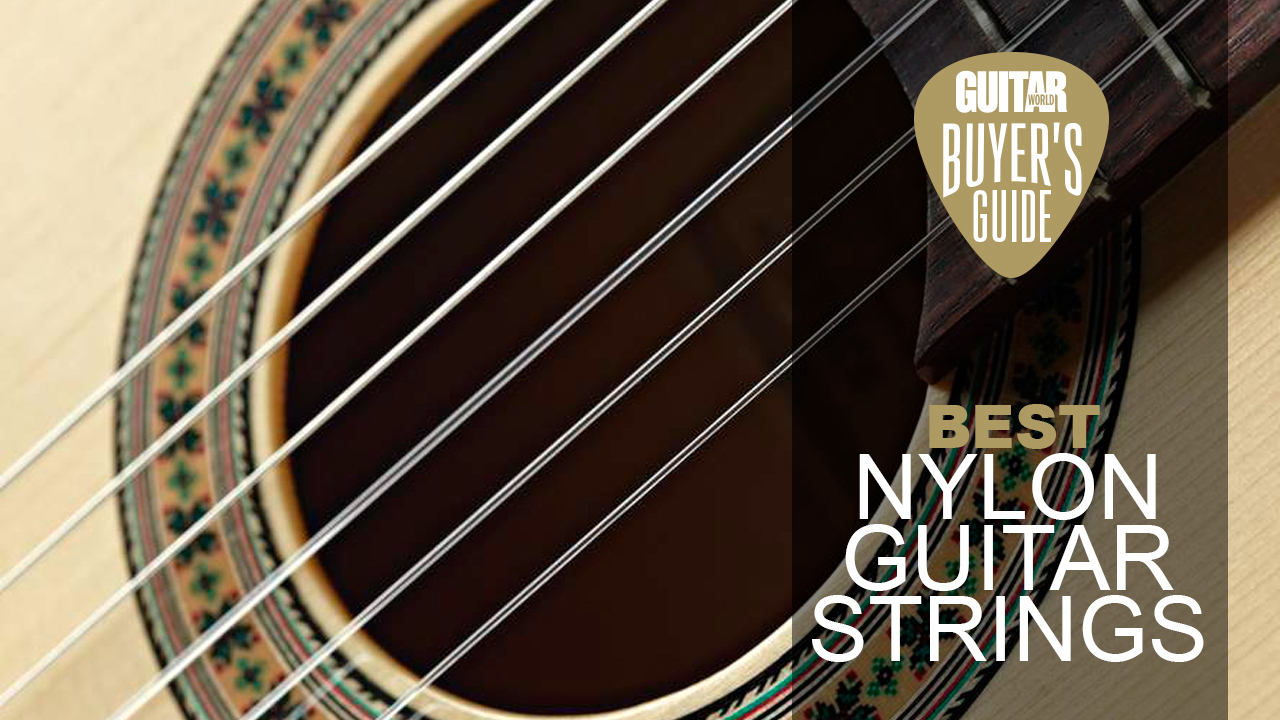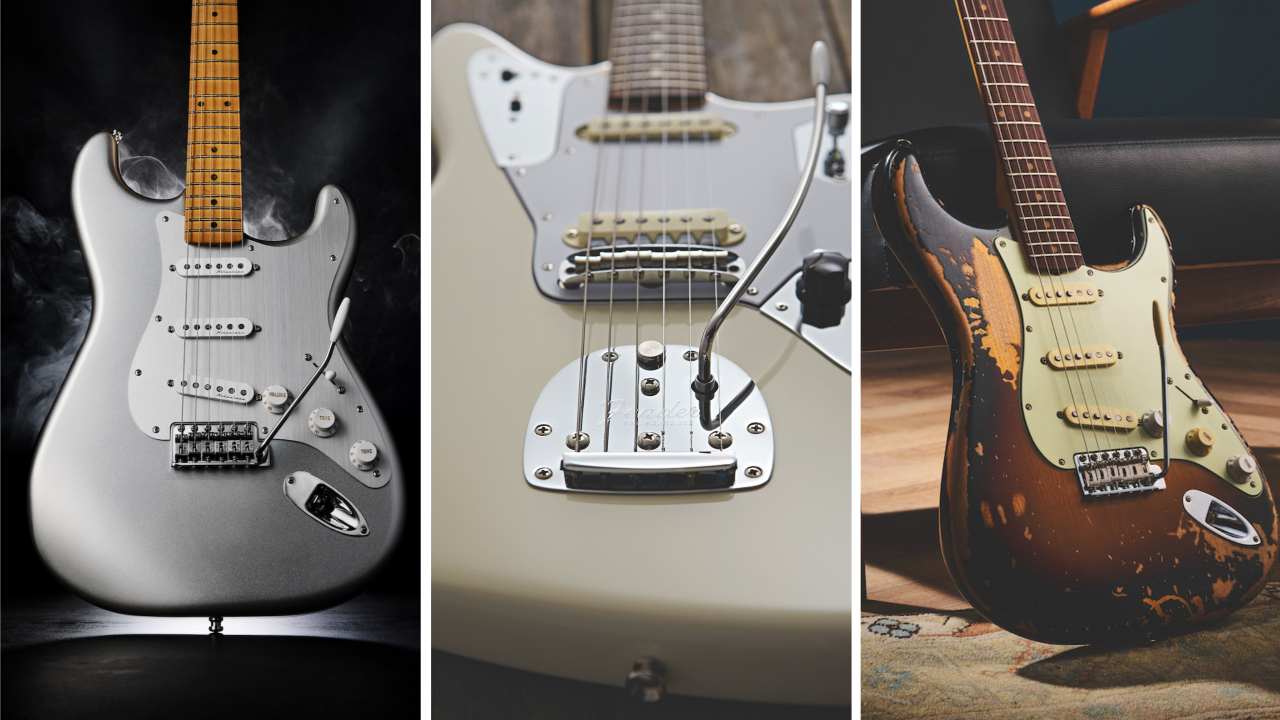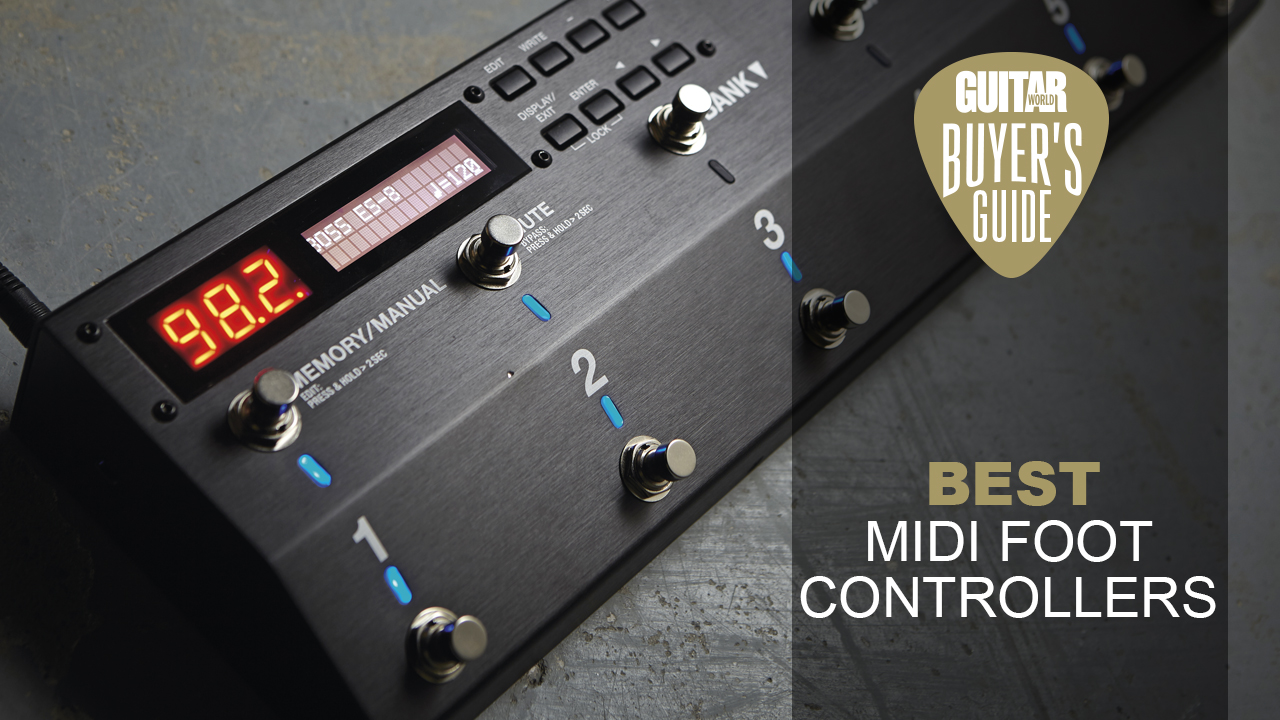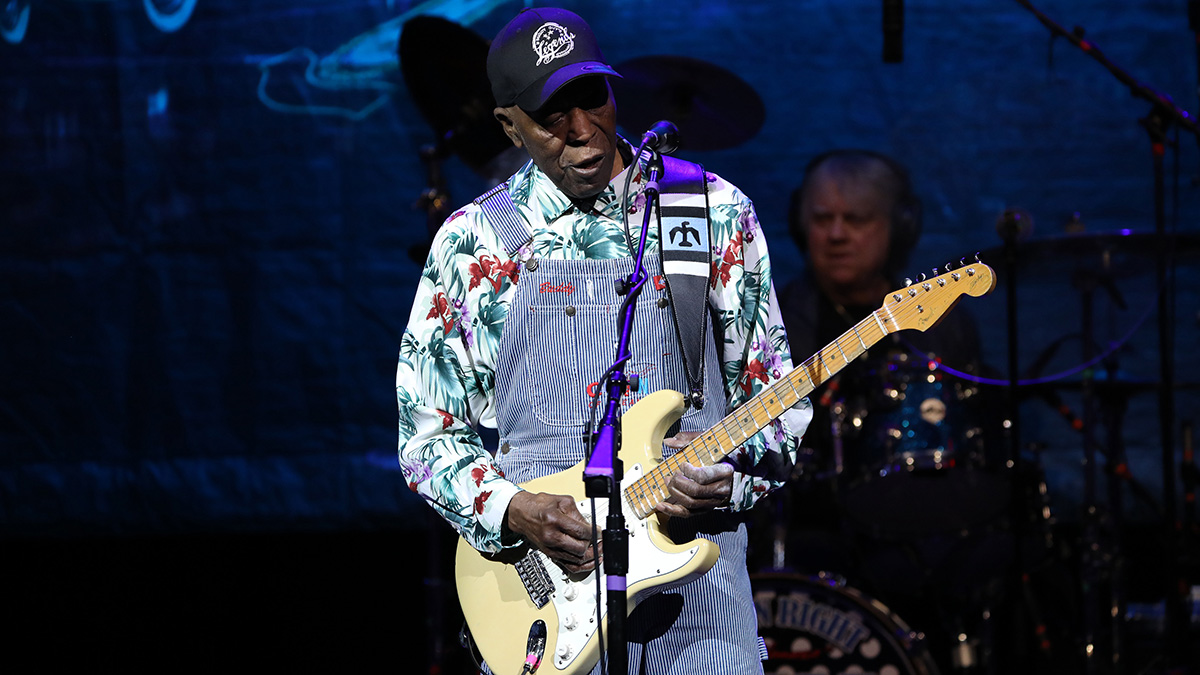Best acoustic guitar microphones 2025: studio and live options to capture your acoustic tone perfectly
Our expert picks of the very best acoustic guitar microphones for every budget and recording scenario
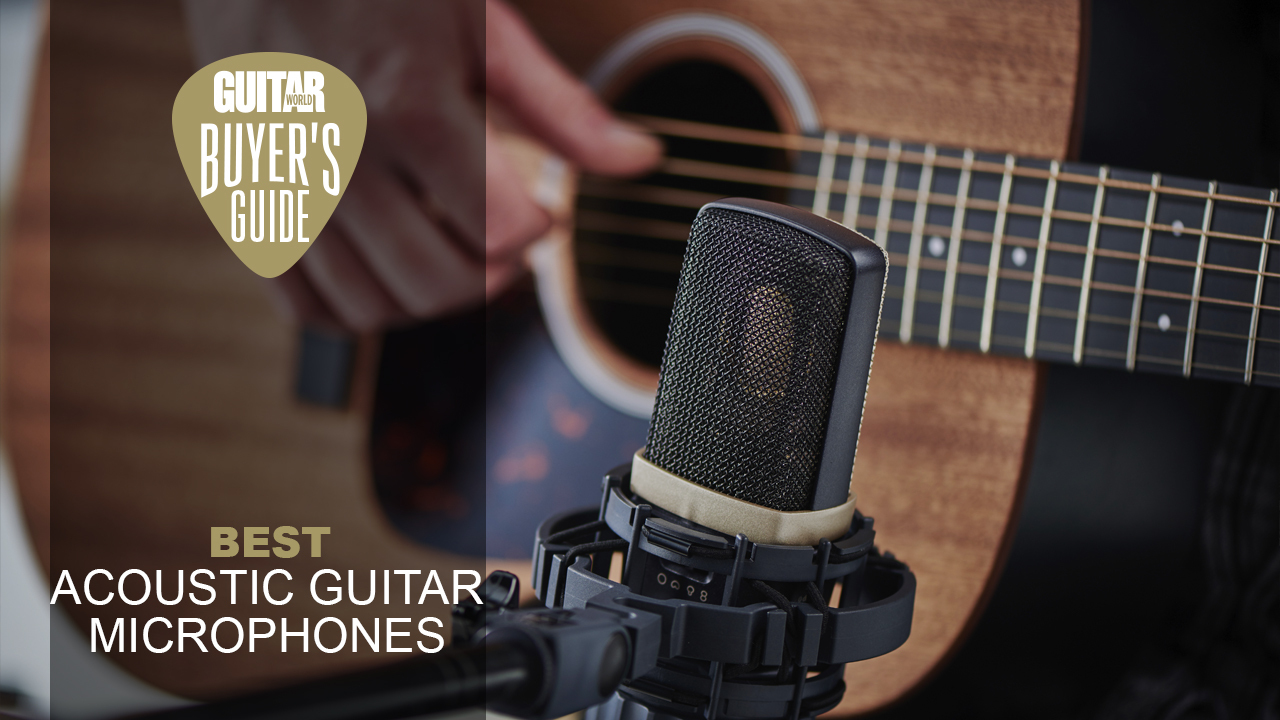
What should you be looking for when searching for one of the best acoustic guitar microphones? Regardless of where you’re playing, capturing the highest sonic qualities of your instrument should always be top of the agenda.
To some, an acoustic guitar is just a bit of wood with a hole and some strings, but we guitarists know better than that. With endless harmonic nuances and vast dynamic qualities, you need the right microphone to seize every ounce of tone. With our selection of the very best acoustic guitar mics – across budgets to suit everybody – these microphones have you covered.
If you need more guidance, we suggest you head to the bottom of the page where we have some dedicated buying advice to help with your purchasing decisions.
Best acoustic guitar microphones: Our top picks
Any singer-songwriter would be wise to invest in an Aston Origin. It excels at recording acoustic guitar, but it sounds brilliant on just about everything else too. Performing at a level far beyond its modest price, the Origin is a brilliant shout for a budding acoustic guitarist looking for a jack of all trades without breaking the bank.
For those with a slightly bigger budget and really looking to push the boat out with their sound by utilising a stereo setup, it's hard to get much better than a matched pair of Neumann KM184. Picking up even the most delicate intricacies of acoustic finger work, the KM184s are bright and articulate and will complement your playing, rather than suppressing your sound. If looked after, these mics will undoubtedly be ever-present in your recording arsenal, guaranteeing beautiful recordings of your instrument for years to come.
Best acoustic guitar microphones: Product guide
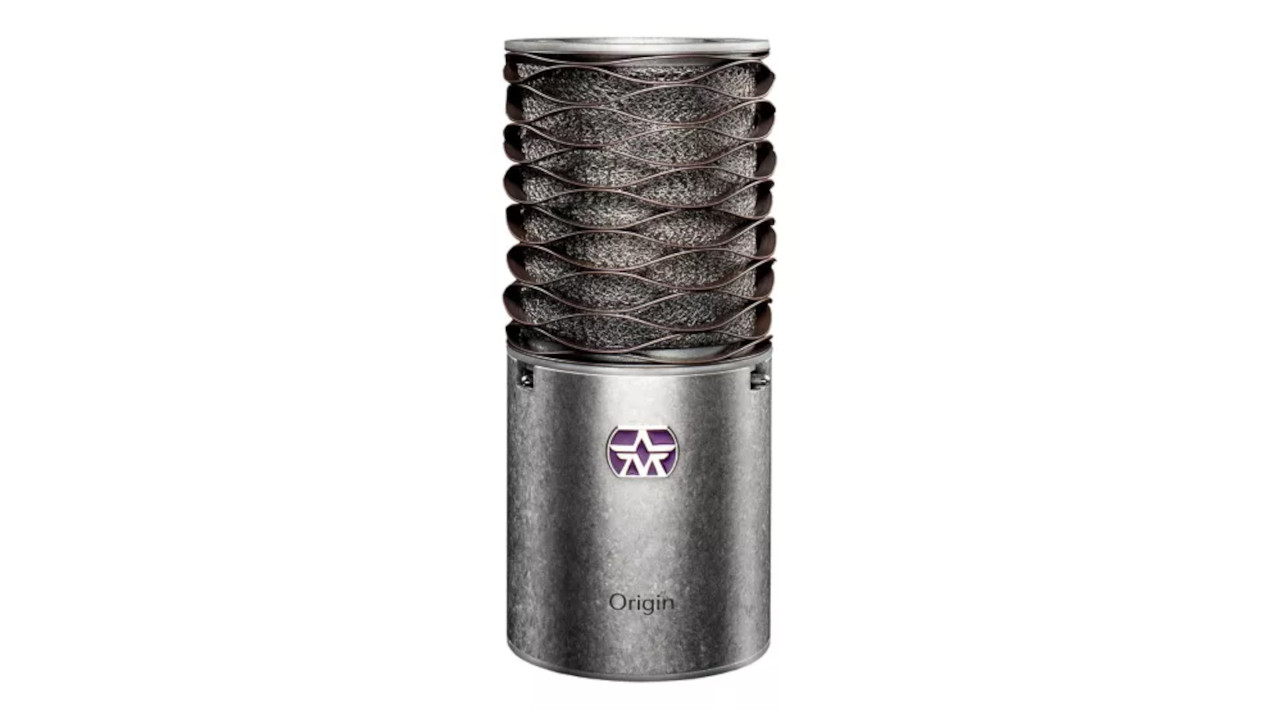
1. Aston Origin
Our expert review:
Specifications
Reasons to buy
Reasons to avoid
The Aston Origin is a microphone that's quickly become the workhorse of many studios given its versatility and respectable durability. I’ve had this microphone on countless instruments; but perhaps where it shines brightest is when recording acoustic guitar. Screwing the microphone into a stand and placing it just about anywhere in front of an acoustic gets reliably awesome results. It picks up barrels of body without skimping on top-end thanks to its broad 20Hz-20kHz frequency response.
The Aston Origin is a great option for singer-songwriters who are looking to get one microphone to record both acoustic and vocals thanks to its superb gold evaporated capsule that ensures brilliant tonal capture. It also looks unique and really quite special, so for live videos it’s a fitting co-star.
Remarkably, in a world where everything seems to have flown up in price, the Aston Origin has stood firm which makes it almost impossible to not consider when on the hunt for a do-it-all microphone that also works with an acoustic. And, to top it all off, it comes in eco-friendly packaging.
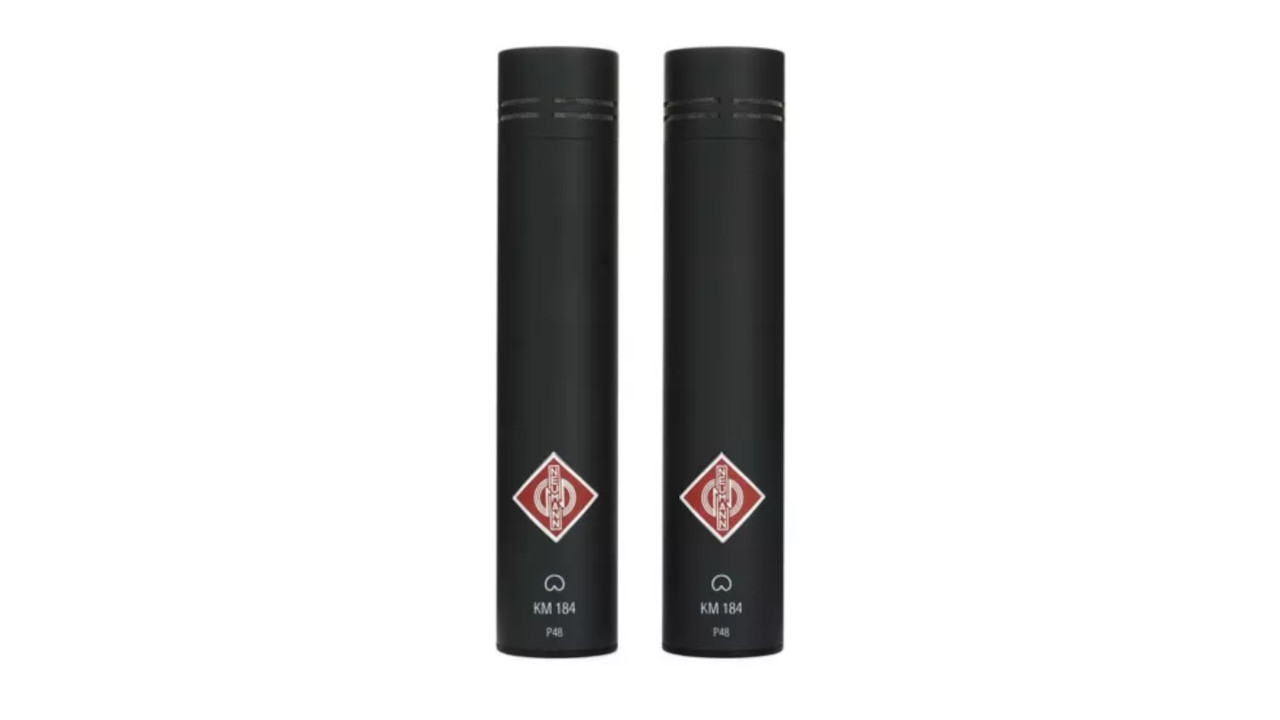
2. Neumann KM184
Our expert review:
Specifications
Reasons to buy
Reasons to avoid
Using a pair of microphones when recording acoustic is about as classic as it gets, with one microphone capturing the ‘boom’ from the sound hole and another further up the neck sweeping up the intricate sounds emanating from the fretboard. And the pick of the bunch for this application is a duo of Neumann KM184s.
While they're a little on the pricey side and they don’t have some of the features of competitors, the Neumann KM184 are famed for their recording of acoustic instruments for a reason. Not much can match their pristine sound, low self-noise and high SPL (sound pressure level), meaning they work for any style of playing, and if available, these are always my go-to for recording an acoustic guitar – either directly or as an additional pair of ambient microphones in the room.
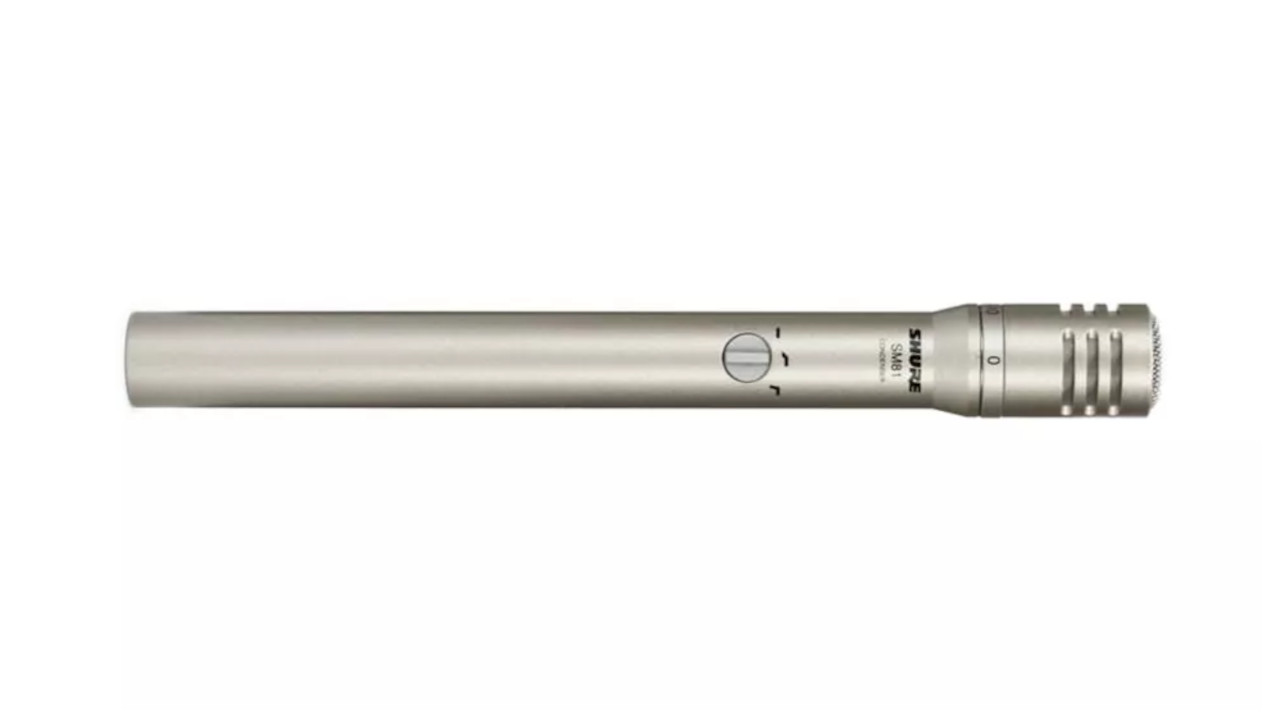
3. Shure SM81
Our expert review:
Specifications
Reasons to buy
Reasons to avoid
If you were to ask 100 sound engineers their choice of microphone for recording acoustic guitar, at least half of them would say the Shure SM81. With a 20hz-20kHz frequency response, the SM81 picks up all the subtleties you’d want to hear when recording acoustic guitar. Courtesy of its famously flat response curve – unless you switch in the built in low-frequency rolloff – you can be sure to get an authentic and honest recording.
With a steel chassis, these mics are built to last – you’ll find a battered, bruised, but completely functional SM81 in the back of most pro-studio cupboards. For most acoustic instruments a Shure SM81 is up to the task, though they have crept up in price in recent years, which may be worth taking into consideration for the budget-conscious.
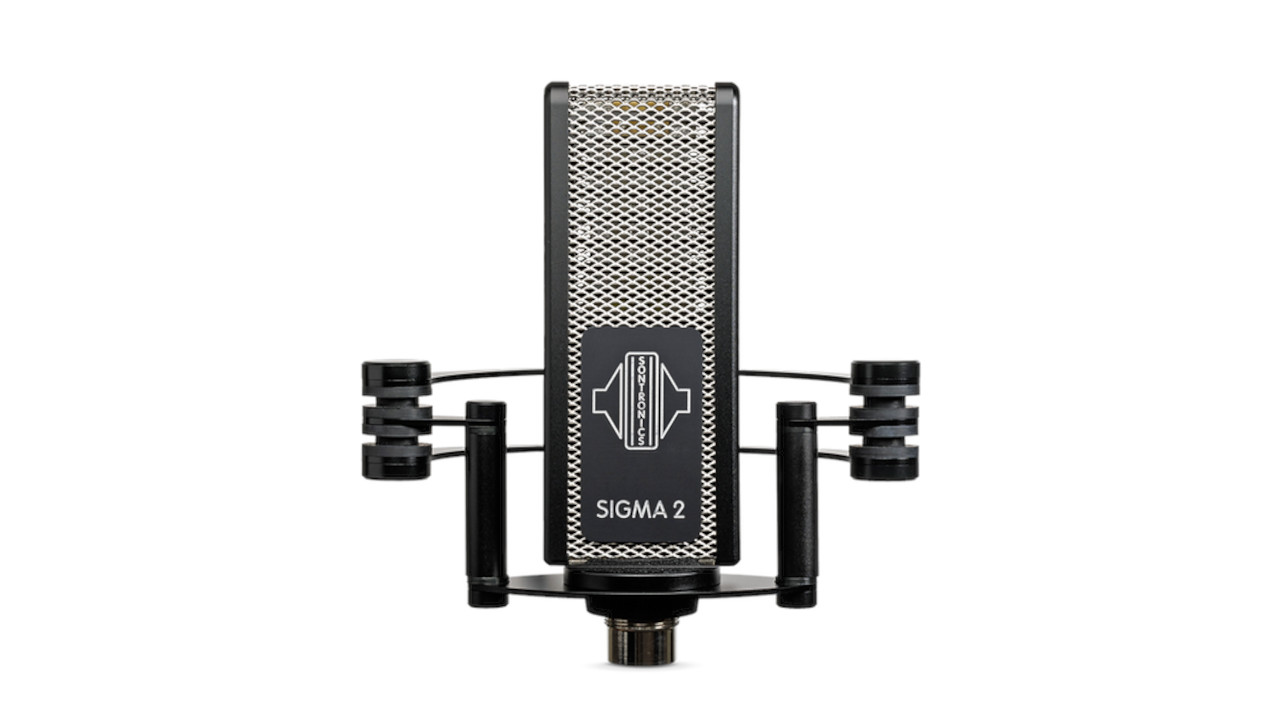
4. Sontronics Sigma 2
Our expert review:
Specifications
Reasons to buy
Reasons to avoid
Ribbon microphones can be a little intimidating for non-professional use; famed for being very delicate, with the tendency of breaking as soon as you put phantom power through them. However, unlike the majority of ribbon microphones, the Sontronics Sigma 2 actually require 48V phantom power – a fact I’d liked to have known before spending roughly half an hour in a studio working out why one wasn’t working – due to it’s on-board preamp, which makes it much easier to get healthy signal levels without cranking your mic preamp and potentially introducing unwanted noise to your recording.
The benefits of using ribbon microphones is getting a warm, vintage sound compared to some condenser microphones, which can sound a little harsh in the upper frequencies. Ribbon mics are famed for being less abrasive, with a smoother top end that really suits acoustic guitars. If you spend a lot of time playing high up the neck, a ribbon microphone would be a great shout for you; and the Sontronics Sigma 2 is a perfect entry point.
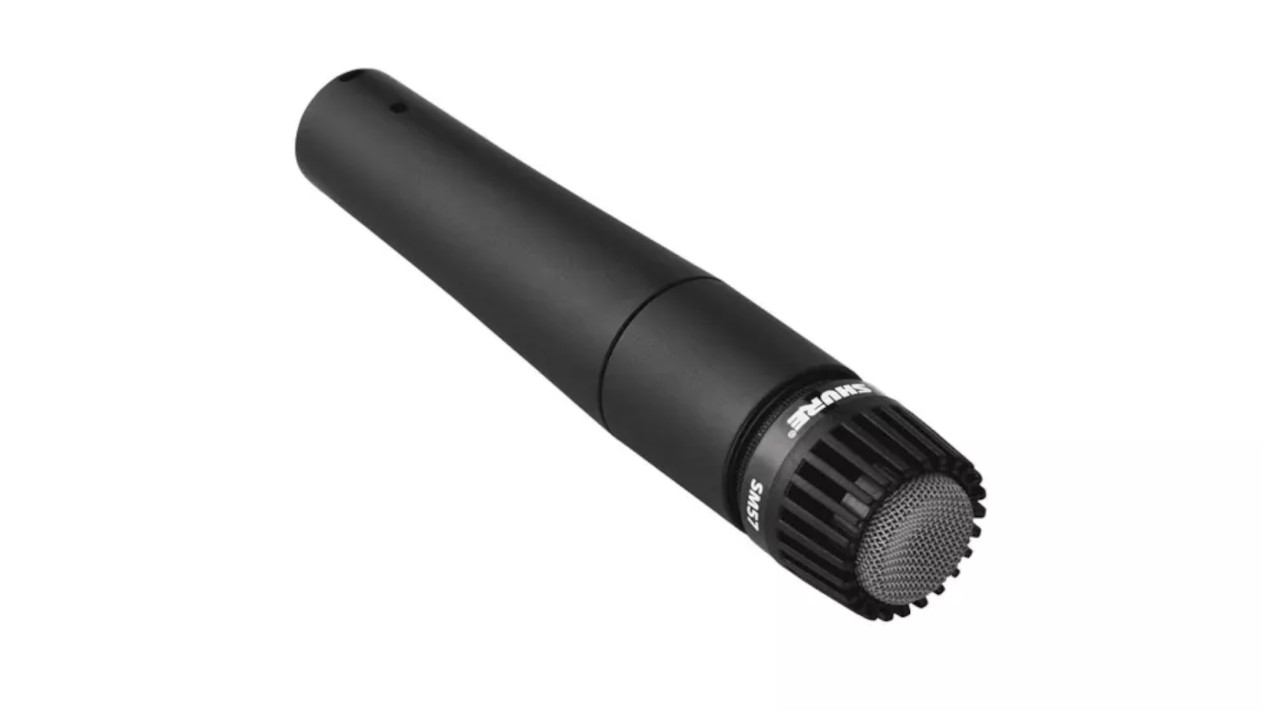
5. Shure SM57
Our expert review:
Specifications
Reasons to buy
Reasons to avoid
Famed for its use on just about anything found in a sweaty, cellar venue; the Shure SM57 is your best friend in a studio or on stage – even for an acoustic guitar. With its cardioid polar pattern, it's lauded for the ability to reject just about any sound source not directly in front of it. This is why it’s excelled in the live environment for so many years and makes it a great option if you are likely to be playing with other people.
Its 40Hz - 15kHz frequency range isn’t going to capture all those delicious overtones that some of the other, more refined microphones on this list will. However, the little bump it possesses from 4kHz upwards – referred to as a ‘contoured presence boost’ – means you can be confident you’ll achieve clarity from your recording. If you’re on a budget and can only buy one microphone, it’s hard to argue against the Shure SM57.
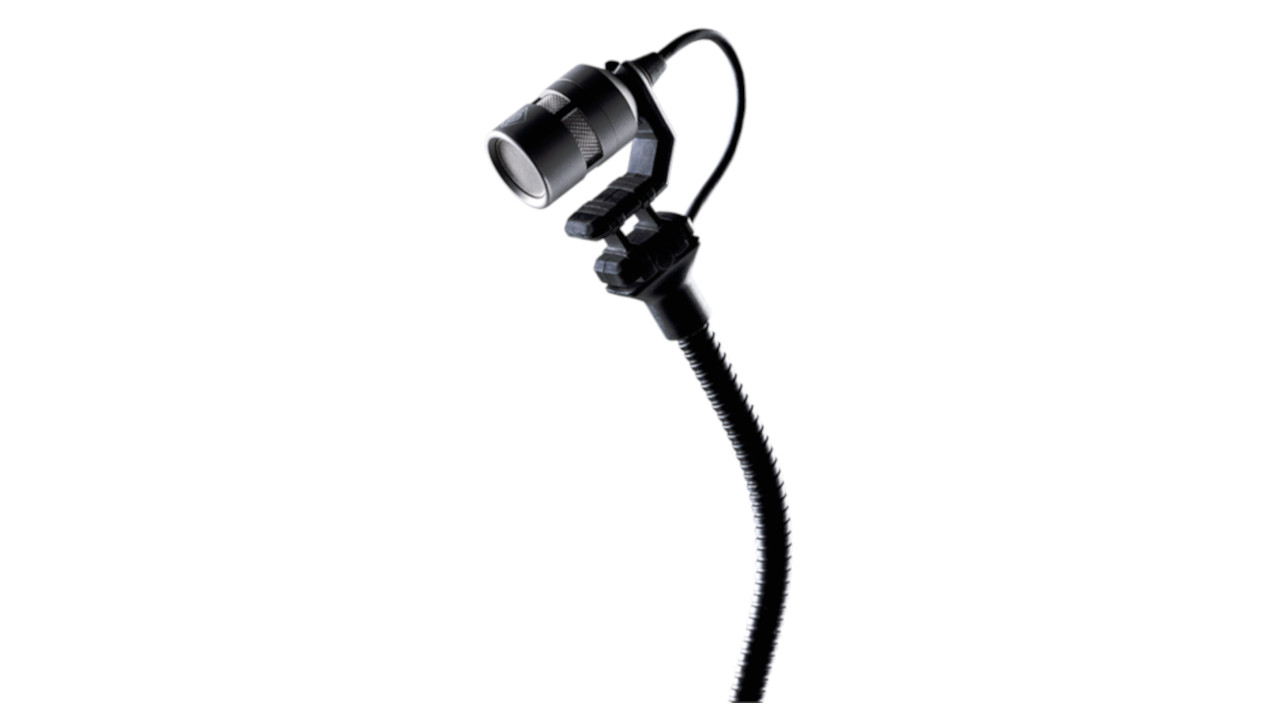
6. Neumann MCM114 Set
Our expert review:
Specifications
Reasons to buy
Reasons to avoid
The Neumann MCM114 is a smart, portable microphone set that's ideal for recording acoustic at home or using in a live environment. Mounted to a gooseneck stand that can be secured directly to your instrument, this set is a clever solution for the live acoustic player who doesn’t want to use a pickup.
With a maximum SPL level of 153, the MCM114 can easily handle heavy strumming, but also excels with more subtle sounds such as finger-picking. This makes it ideal for a live set with an eclectic range of playing styles. Wireless connectivity is a major selling point so there’s no need to be tied down with cumbersome cables with this – though classic XLR connection is also available
Built with a ‘road-tough’ titanium housing and a ‘modular’ design to allow for replacing individual components rather than the whole set, this is definitely a microphone Neumann have designed to withstand the rigours of touring.
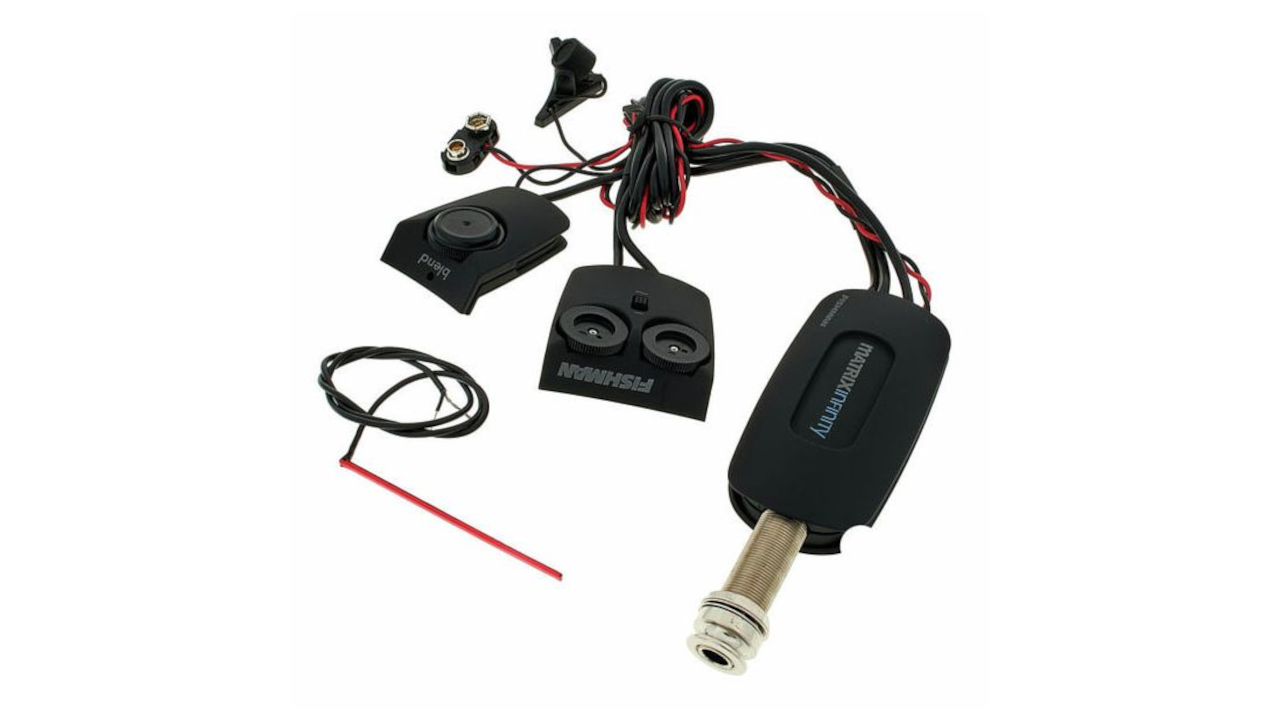
7. Fishman Matrix Infinity Mic Blend Acoustic Pickup
Our expert review:
Specifications
Reasons to buy
Reasons to avoid
Fishman are synonymous with developing brilliant pickups and really came to the fore with their undersaddle acoustic pickups. While miles ahead of the majority of the competition, it’s fair to say that there was still a bit of the metallic sound you often get with acoustic pickups. With the Matrix Infinity Blend, they’ve combatted this with the addition of a mini sound hole condenser microphone that adds richness and a woodiness that can be missed with a pickup alone.
With volume, tone, and blend controls, the Matrix Infinity allows you to blend as much of the microphone with as much of the pickup as you'd like, giving maximum flexibility to strike the perfect balance. Another huge benefit is the ability to plug and go, rather than setting up a stand or any external equipment, so it really lends itself to live playing or quick demo recording.
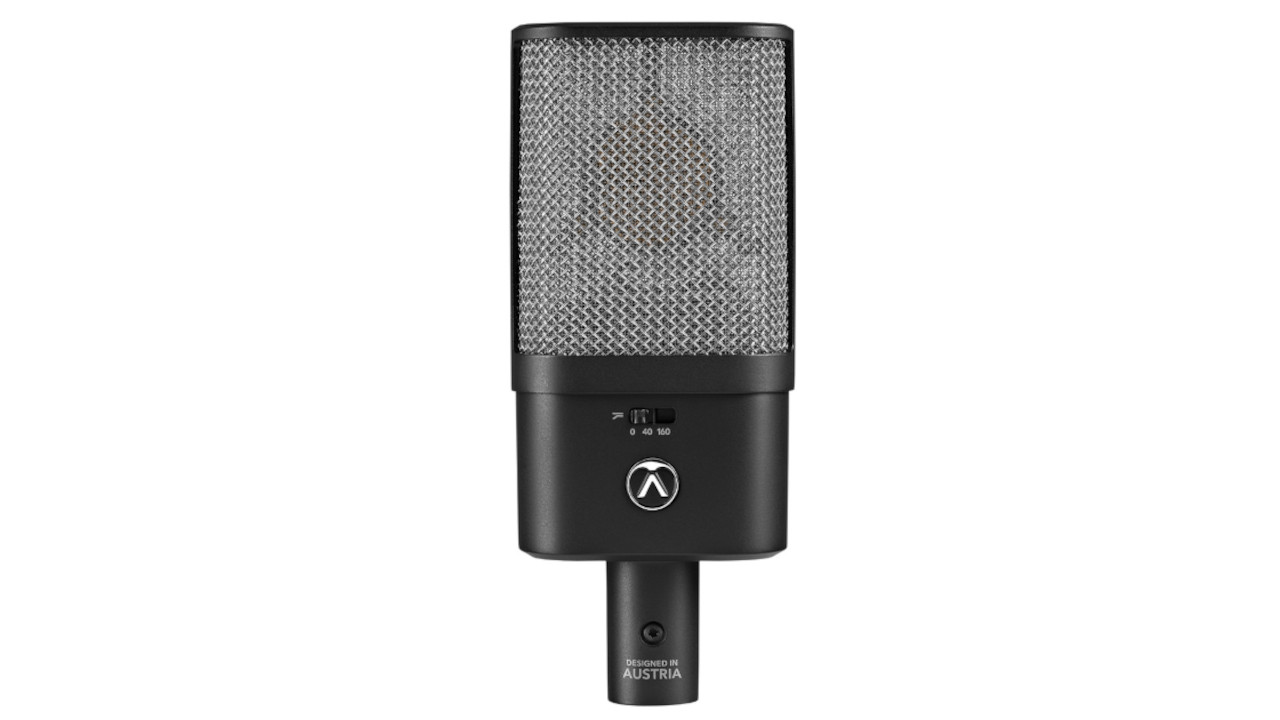
8. Austrian Audio OC16
Our expert review:
Specifications
Reasons to buy
Reasons to avoid
The team at Austrian Audio have impressed since opening their doors back in 2017 with their AKG-inspired, hand-built capsules. To keep the cost down with the OC16, they've outsourced manufacturing but kept the construction of the CKR6 ceramic capsule – the same used in the more expensive OC18 – in-house. This is the crown jewel of this microphone and what sets it apart from its competitors, is a smooth response across the whole frequency range (20Hz - 20kHz), while a little boost in the higher frequencies will offer a nice shimmer to your playing. It’s almost impossible to find hand-made capsules at this quality anywhere else at this price.
Versatile enough to work on just about any string instrument – players who dabble in banjo, ukulele or lute, this would be a great option for you – Austrian Audio’s ‘open acoustic technology’ helps capture the best sound without coloration. It achieves this through its transformerless design and best-in-class noise floor, built-in diffuser to reduce internal reflections, and floating capsule. All of this means the body of the microphone has minimal impact on that prodigious capsule and you can reliably achieve authentic recordings of your acoustic.
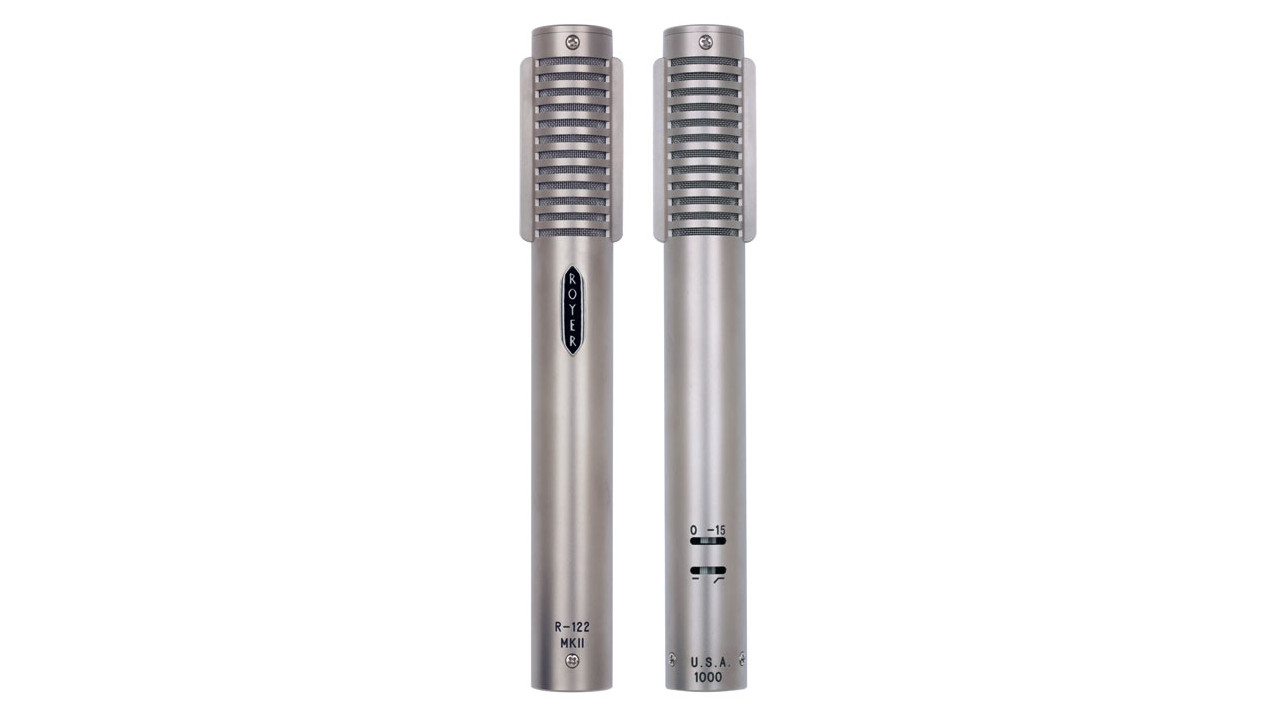
9. Royer R-122 MKII
Our expert review:
Specifications
Reasons to buy
Reasons to avoid
If money is no object and you want the very best acoustic guitar recording, it has to be the Royer R-122 MKII. A truly beautiful microphone that provides that intangible, ‘classic’ quality, which those who are really serious about capturing their sound.
Like the Sigma 2, the R-122 has a built in preamp which means it doesn’t face the traditional issues that plague ribbon microphones; namely having to crank your mic preamp and inadvertently introduce a bucket-load of unwanted noise, which is a blessing for guitarists who favour softer playing techniques such as finger-picking.
The MKII offers more versatility than its predecessor with the introduction of a -15dB pad and switchable 100Hz bass-cut filter, which comes in handy when recording bigger-body acoustics with lots of low-end. Like the MKI, the Royer R-122 MKII has retained its rapid transient response thanks to its ‘special Royer-designed toroidal transformer’, making it ideal for capturing percussive playing.
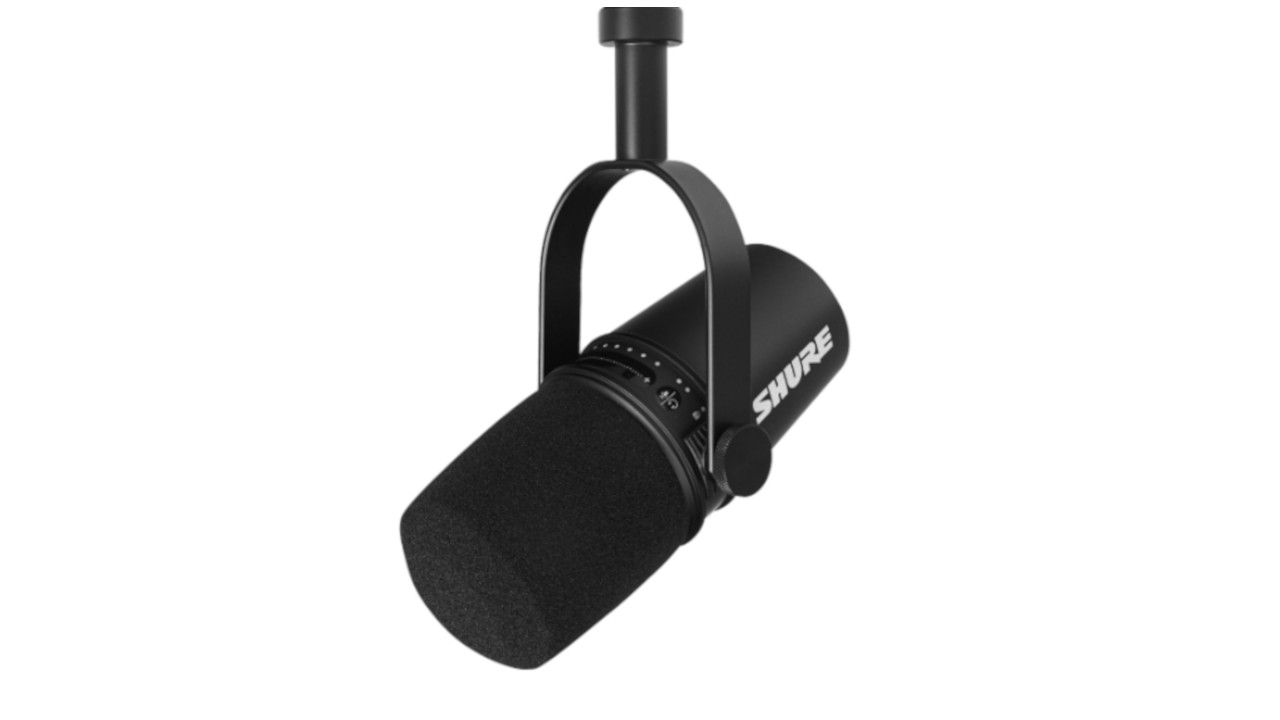
10. Shure MV7
Our expert review:
Specifications
Reasons to buy
Reasons to avoid
A rogue shout but one that should appeal to those not blessed with recording experience. The Shure MV7 is marketed as a ‘podcasting microphone’ with a built in interface that allows you to connect straight to your computer via USB. However, the MV7 has shown that it’s more than capable of being great for recording acoustic guitar too.
With easy access to EQ cuts and bumps through the MOTIV app – which also features a slick compressor – the Shure MV7 offers a straightforward way to record acoustic demos at home. The auto-levelling feature is ideal for beginners who might not want to spend long trying to balance their input level, while the MV7 should appeal to casual singer-songwriters who are looking to dip their toe into home recordings. It’s also a great option for travelling musicians looking for a simple but effective solution for recording on the road.
Don’t expect this to be the only acoustic microphone you’ll ever need as it can’t match many of the other microphones on this list. However, as a first step into acoustic guitar recording, it’s a brilliant solution that will get you admirable results.
Best acoustic guitar microphones: Buying advice
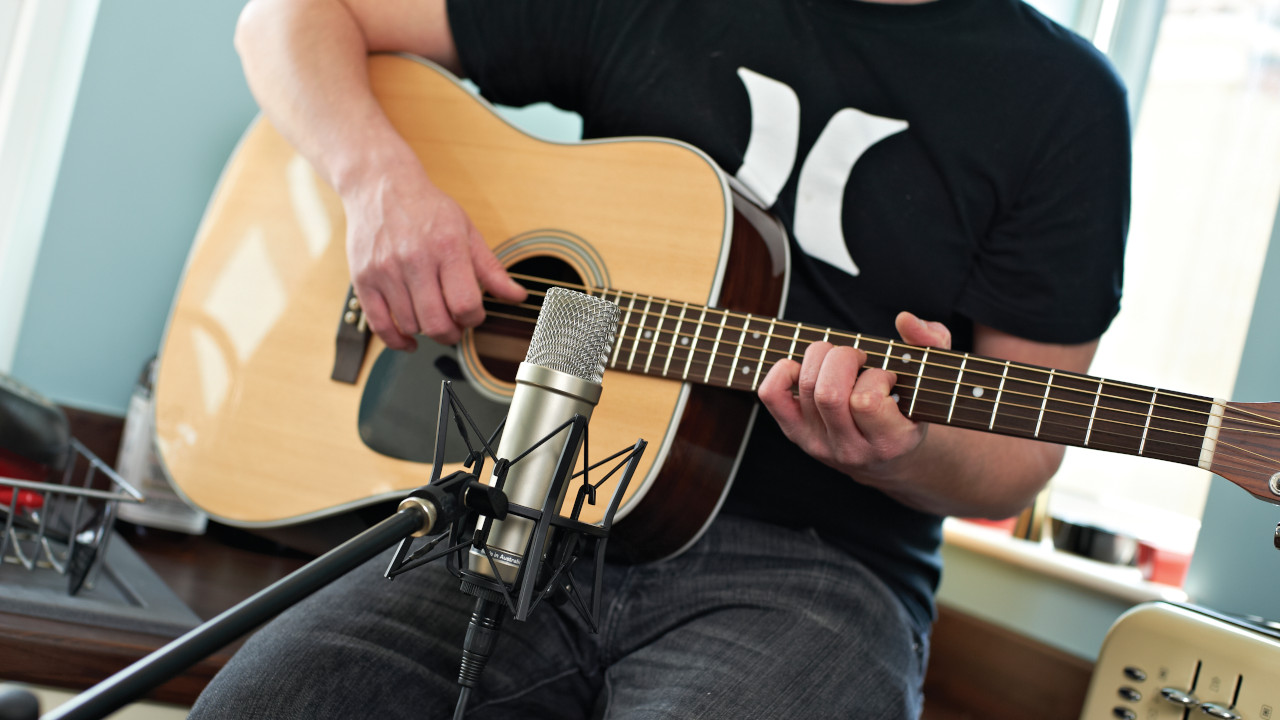
How to choose the best acoustic guitar microphone for you
You can trust Guitar World
Acoustic guitar playing can range from the light and delicate to boisterous and loud, and capturing those different dynamics is a tall order, which is why getting the right microphone for the job is really important.
Which microphone types are best for acoustic guitar?
In general, condenser microphones are a great option for acoustic guitars as they're more sensitive than their dynamic counterparts, which may not pick up some aspects of your playing you particularly want to capture.
It's worth noting that for the live environment, dynamic microphones can be useful, due to their cardioid polar pattern that is very directional to its sound source and helps reject unwanted noise from other sources – plus they tend to be a lot harder-wearing than other microphones.
Ribbon microphones are a superb shout, though typically sit at a higher price than even condenser microphones. They also have their own drawbacks including low signal level, which may not work well for those who play more delicately or have particularly noisy preamps.
Do I need more than one microphone?
Though many assume all the noise from an acoustic comes from the sound hole, that isn’t the case as the whole instrument exudes tone when playing. Capturing all of that sonic information is a lot to ask for one microphone, which is why it can be desirable to have multiple microphones, so consider whether you may want to get a pair of microphones.
Many manufacturers sell microphones in matched pairs, meaning they've been tested to ensure they're built to exacting measurements of sensitivity and frequency response, which is desirable for achieving accurate stereo images.
How we chose the best microphones for acoustic guitar
Myself and the wider Guitar World editorial team have extensive experience of acoustic guitar recording and gigging and have tried and tested a wide range of microphones at multiple prices from different brands. We have also experimented with various configurations, from single to multi-mic setups and a variety of recording scenarios.
Our choices take into consideration price, build quality, features and performance. Find out more about how we make our recommendations and how we test each of the products.
Related buyer's guides
- How to choose the best microphone for your acoustic guitar
- Best acoustic guitars under $500: including acoustic-electric models
- Best acoustic guitars under $1,000: great tone for less
- Just starting out? Check out the best beginner classical guitars
- Best acoustic guitar strings: time to freshen up
- Stock up on guitar gear essentials and accessories
- Check out the best acoustic guitar pickups
- Best DAWs for guitarists: guitar-friendly music-making software
Get The Pick Newsletter
All the latest guitar news, interviews, lessons, reviews, deals and more, direct to your inbox!
Connor is a contributor to Guitar World and MusicRadar. Having been a guitarist since the age of 10, he's played bass and guitar in bands across the South West of England. He has a background in audio engineering, having worked in some of the UK’s best studios including Rockfield and Invada, and has a passion for recording guitar. He is always keen to discover the greatest gear for capturing tone, be that microphones, audio interfaces or cab simulators.

